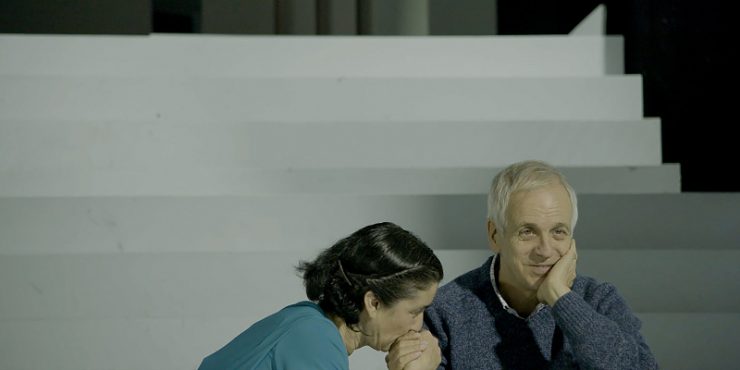The Alzheimer’s Drama has become something of a trope in movies in the last twenty years. The affliction is an easy application for melodrama, and is often exploited for maximum pathos in ways that are saccharine at best, poor taste at worst. The Eternal Memory, a documentary about two luminaries of Chilean culture is, first and foremost, a love story. When its successful, it treats the Alzheimer’s of Augusto Góngora not as a pathway to sorrow, but as one of many obstacles that love has overcome. Augusto’s wife, Paulina Urrutia, is a celebrated actress, and he is a prominent television journalist. Their lives have been a testament to commitment, despite the hardships that Twentieth Century Chile put in their way. Augusto’s diagnosis is not a burden on their marriage but another symbol of their unbreakable bond.
Augusto and Paulina have been together for 23 years, only recently getting married. They’ve witnessed the horrors of government coups, political murder, and other atrocities done by Pinochet. They’ve lost friends and loved ones, and now, Augusto is losing his memory. Lost memories, even if they are tragic, have a cost. In forgetting all he’s overcome, Augusto begins to forget the strength with which he met the world. It is Paulina’s goal to ensure that doesn’t happen. Maite Alberdi, whose 2020 film The Mole Agent had a similar knack for finding droves of charm with elderly subjects, is smart to dwell more on what this couple has than on what they’re losing. The movie occasionally suffers from a morose fixation on anguish. Perhaps with this subject matter that’s unavoidable. But The Eternal Memory shows us a different way to view Alzheimer’s in film.
Directed by Maite Alberdi










